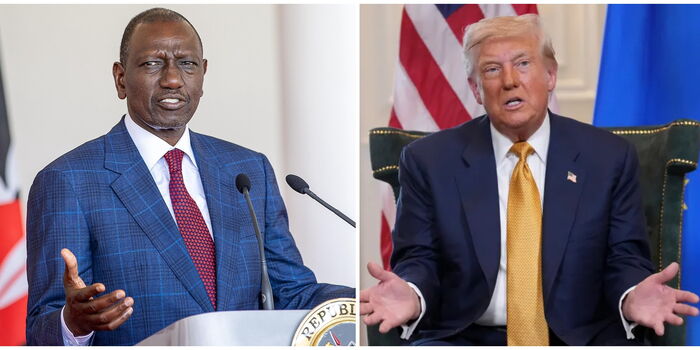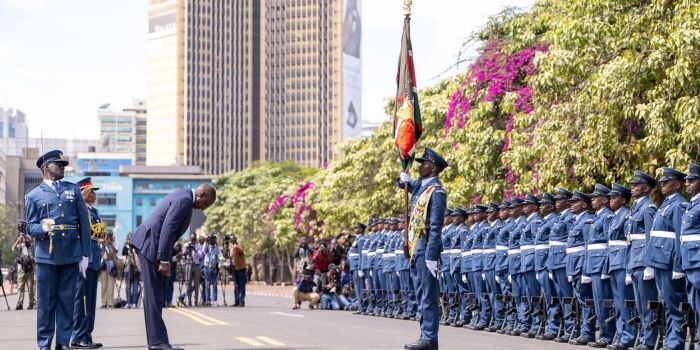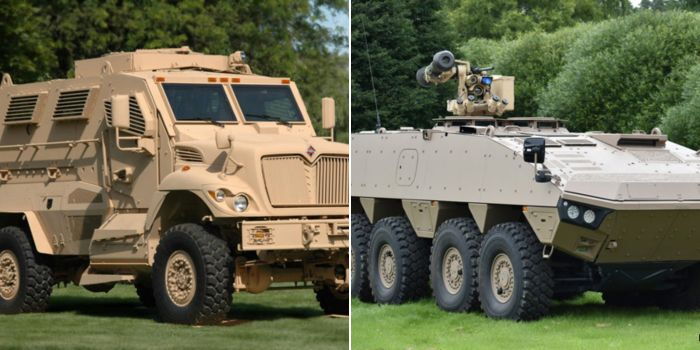In 2024, Kenya made history. President William Ruto visited the United States, becoming the first Kenyan leader to make a state visit to Washington in 15 years. During that visit, Kenya received a special title from the U.S. government, Major Non-NATO Ally (MNNA).
This was a big deal. It meant Kenya had a special partnership with the U.S. without being part of the NATO military alliance. It gave Kenya access to military support, advanced training, and top-level cooperation with the United States.
But now, just over a year later, that partnership is at risk.
Some lawmakers in the United States are asking whether Kenya still deserves this privileged status. In August 2025, a new amendment was introduced by U.S. Senator James Risch, calling for a review of Kenya’s relationship with the United States.
The amendment lists seven major areas to be reviewed. These include Kenya’s role in stopping violent extremism, its peacekeeping efforts in Africa and Haiti, and its military ties with powerful countries like China, Russia, and Iran.
The U.S. seems concerned about Kenya’s close relationships with China, a country that has been in trade conflicts with the U.S. for months. These ties could be seen as going against America’s global interests.
Because of this, a new law now requires the U.S. Secretary of State, together with other officials, to start a formal review within 90 days. Congress is expected to release a full report within 180 days.
This review could change a lot for Kenya. If the country loses its MNNA status, the effects would be serious.
First, Kenya could lose access to special military loans for research, training, and equipment. Right now, the U.S. can provide Kenya with advanced weapons and support at reduced or no cost. That could end.
Second, Kenya could lose its priority when requesting extra equipment from the U.S. military. Under the Foreign Assistance Act (Section 516), Kenya currently gets faster delivery of used U.S. military gear. Without MNNA status, this benefit would vanish.
Third, Kenya may no longer qualify to buy certain powerful weapons, like depleted uranium ammunition. This type of ammo is key for tank protection and advanced military operations.
Fourth, Kenya would lose the chance to compete for U.S. military contracts abroad, especially for repair, maintenance, or upgrades of U.S. military gear stationed outside the country.
Kenya could also lose access to joint training programs where the U.S. covers the costs. These military exercises are vital for Kenyan forces to stay prepared for modern threats like terrorism.
Overall, losing MNNA status would weaken Kenya’s military edge and slow down security operations across the region.
But it’s not just about weapons. The status also reflects political trust and long-term friendship. Losing it could make other global partners question Kenya’s position on key international issues.
Despite the pressure, Kenya’s Foreign Affairs Principal Secretary, Dr. Korir Sing’Oei, has urged calm. He told Kenyans that the government is fully aware of the concerns raised in the U.S. Congress.
He added that these issues would be “comprehensively addressed” while defending Kenya’s national interests and sovereignty.
In simple terms, Kenya is trying to walk a fine line, working with global powers like the U.S., China, and Russia without losing its independence. But that balance may be harder to keep now.
The next few months will be crucial. Kenya must prove that it is still a reliable partner in global security, peacekeeping, and diplomacy.
This situation is more than a political debate. It’s a test of Kenya’s foreign policy and how well it can manage big powers competing for influence in Africa.
If the review goes against Kenya, the country could face new challenges in its fight against terror and regional instability.
But if Kenya manages to explain its position well, it might not only keep its MNNA status, it might strengthen the partnership further.
Only time will tell what path Kenya will take, but for now, the eyes of Washington are watching closely.






